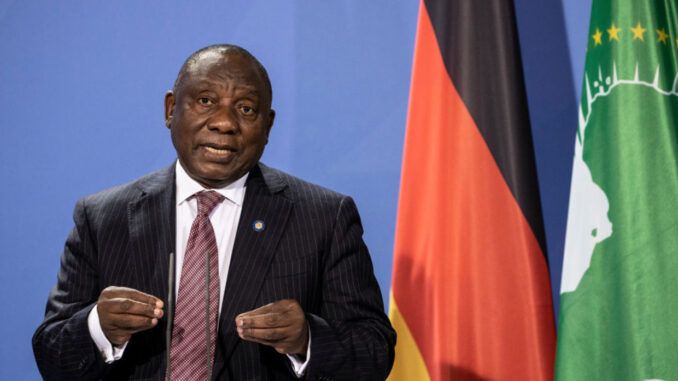
South African President Cyril Ramaphosa has blamed NATO for the war in Ukraine and said he would resist calls to condemn Russia
Ramphosa who had been a potential mediator in the Russia-Ukraine conflict, faulted NATO for triggering war in the former Soviet republic by expanding eastward onto Moscow’s back door..
He told South African lawmakers on Thursday: “The war could have been avoided if NATO had heeded the warnings from amongst its own leaders and officials over the years that its eastward expansion would lead to greater, not less, instability in the region”

BYPASS THE CENSORS
Sign up to get unfiltered news delivered straight to your inbox.
You can unsubscribe any time. By subscribing you agree to our Terms of Use
He also claimed that the number of US troops in Europe has increased by about a quarter in the past two months alone
Russian president Vladimir Putin has stated NATO’s increasing military presence close to the borders of Ukraine as the main reason behind the invasion.
South Africa abstained from backing the United Nations General Assembly resolution that condemned Russia’s military action in Ukraine, and chose instead to remain neutral alongside 34 other countries, including China, India and Pakistan.
The South African president said it was important to understand the causes of the crisis, but that doesn’t mean agreeing with the Russian invasion.
Ramaphosa said: “We cannot condone the use of force or violation of international law”
His latest comments came after he revealed last week that he had been asked to help mediate the negotiations between Moscow and Kiev.
Ramaphosa said that he had already spoken to Putin, who indicated that he was eager to end the fighting, and hoped to talk soon with Ukrainian President Volodymyr Zelensky.
Without identifying the countries that have pressured him, the South African leader noted on Thursday: “There are those who are insisting that we should take a very adversarial stance and position against Russia”
“The approach that we have chosen to take, which is appreciated by many, is that we are insisting that there should be dialogue. Screaming and shouting is not going to bring an end to this conflict.”


